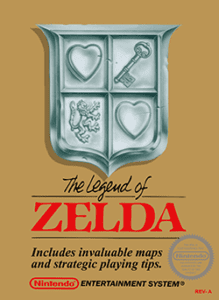What Makes Free-to-Play MMORPGs So Popular?
In the vast world of online gaming, few genres have captured the hearts and minds of players like free-to-play MMORPGs (Massively Multiplayer Online Role-Playing Games). These games have not only transformed how we experience multiplayer entertainment but have also revolutionized business models in the gaming industry. With millions of players signing up to traverse fantastical worlds without spending a dime, it’s worth examining what makes these games so popular and how companies sustain themselves financially.
The Allure of Free-to-Play MMORPGs
One of the most apparent attractions of free-to-play MMORPGs is their accessibility. By eliminating the upfront cost barrier, developers open the door to a diverse range of players who might otherwise be hesitant to invest in a new game. This model allows gamers to dive into expansive virtual worlds with robust narratives and complex mechanics without the worry of financial commitment.
Beyond cost, these games offer an unparalleled social experience. Players from across the globe can collaborate, compete, and form communities within rich virtual landscapes. The sense of belonging and camaraderie among players is a powerful draw, as friendships blossom through shared adventures and quests. This social element often becomes a cornerstone of a game’s appeal, encouraging players to return regularly to interact with fellow adventurers.
The continuous evolution of these games further enhances their allure. Developers frequently update content, ensuring that players always have something new to discover or achieve. Whether it’s the introduction of fresh storylines, challenging raids, seasonal events, or cosmetic updates, the dynamic nature of MMORPGs keeps gamers engaged for the long haul. Such ongoing support fosters a thriving community invested in both the game and its future.
How Companies Profit From Free-to-Play Models
While free-to-play MMORPGs invite players to join at no initial cost, developers employ various monetization strategies to generate revenue. A common and effective approach is the implementation of a microtransaction system. Through this, players can purchase in-game currency, cosmetics, or other enhancements that enhance their gameplay experience. Importantly, these microtransactions are typically designed to provide convenience or aesthetic personalization rather than conferring competitive advantages, maintaining a fair playing field for all participants.
Another popular method is the sale of expansions or additional content packs. Though the base game remains accessible to everyone, premium content often requires purchase. These expansions broaden the game’s universe, offering dedicated players more areas to explore, characters to meet, and stories to unravel. It allows developers to capitalize on a committed audience eager for deeper engagement while ensuring the core experience remains free.
Subscription models also play a role in supporting free-to-play MMORPGs. Some games offer optional memberships that grant players exclusive benefits such as faster leveling, unique items, and priority server access. For avid gamers, these perks justify the monthly fee, providing a steady revenue stream for developers and enhancing the player’s experience.
Additionally, partnerships and collaborations provide lucrative opportunities. Brands may sponsor in-game events or integrate advertising seamlessly into the gaming environment. This not only diversifies income sources but also introduces players to potentially relevant products or services, creating a symbiotic relationship between the gaming world and external businesses.
The Psychological Draw of Free-to-Play MMORPGs
Beyond the structural elements and monetization tactics, the psychological appeal of free-to-play MMORPGs cannot be understated. These games satisfy fundamental human desires for achievement, mastery, and progression. Engaging in challenging quests or completing difficult achievements offers a sense of accomplishment that players find deeply rewarding.
Moreover, these games often employ systems of intermittent rewards, which align well with human psychological responses. As players receive unexpected but gratifying rewards, they feel compelled to continue playing in hopes of further surprises. This unpredictability in reward schedules can make gaming sessions thrilling and addictive, encouraging prolonged engagement.
Another significant factor is the sense of immersion and identity these games offer. Players can create avatars that reflect idealized versions of themselves or entirely new personas. This level of customization allows individuals to escape reality and explore different facets of their identities within a safe and imaginative space. The possibility to evolve one’s character over time adds another layer of attachment, making the game world feel almost like a second home.
Challenges and Considerations
Despite their popularity, free-to-play MMORPGs are not without challenges. Developers must strike a careful balance between monetization and user satisfaction to avoid alienating the player base. Excessive emphasis on microtransactions or creating “pay-to-win” scenarios can lead to dissatisfaction and exit from the game. Clear communication with the community and transparent policies can help maintain trust and loyalty.
Moreover, even though these games are free to start, they require significant resources to develop and maintain. Continuous updates, server costs, customer support, and community management demand substantial investment. Thus, companies must meticulously plan and innovate to ensure sustainability without compromising on quality or player experience.
Conclusion
Free-to-play MMORPGs have redefined the gaming landscape by blending expansive, immersive worlds with innovative business models that cater to diverse audiences. Their enduring popularity is rooted in their ability to offer thrilling experiences, nurture tight-knit communities, and evoke a profound sense of accomplishment. Meanwhile, developers leverage creative monetization techniques to support and grow their creations. As the genre continues to evolve, these games will likely remain a staple in the digital entertainment ecosystem, offering endless adventures for players worldwide.






Post Comment